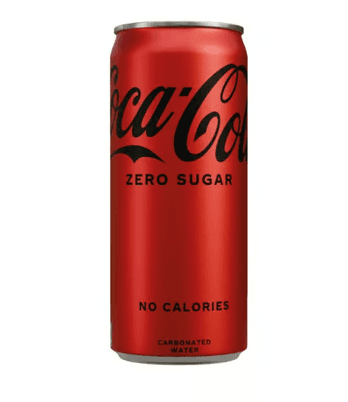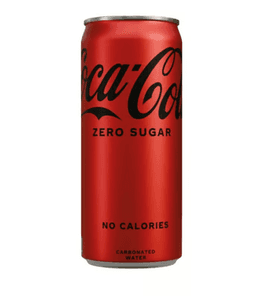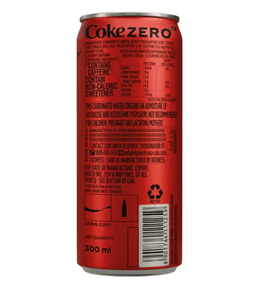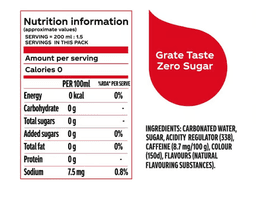Product Analysis Report
Comprehensive Safety Assessment




Potential Harmful Content:
Aspartame
Acesulfame Potassium
Overview
This is a Coca-Cola Zero Sugar beverage. The ingredient list includes carbonated water, color (150d), acidity regulator (338), aspartame and acesulfame potassium (artificial sweeteners), and natural flavoring substances. The nutrition information indicates zero calories, sugars, fat, and protein. The primary concerns revolve around the use of artificial sweeteners. Aspartame has been linked to various health issues in some studies, including neurological effects and headaches, although it is generally considered safe by many regulatory bodies at accepted levels of consumption. Acesulfame Potassium is another artificial sweetener; some studies suggest potential links to metabolic and hormonal disruptions, though more research is needed. The acidity regulator (338) or phosphoric acid can contribute to dental erosion and may affect calcium absorption if consumed in high quantities. Overall, while this beverage is sugar-free and low in calories, the inclusion of artificial sweeteners is a potential drawback for those concerned about their health effects.
Trustworthiness
The product's claims of 'zero sugar' and 'no calories' are verifiable from the nutrition label. However, the long-term health impacts of artificial sweeteners like aspartame and acesulfame potassium are still debated, suggesting the need for more research and personal discretion. Consumers should be aware of the potential downsides of these ingredients and make informed choices. I would recommend users to do their own research as well.
Misleading Information
The label claims 'Zero Sugar' and 'No Calories' which is technically true. However, it may mislead consumers into thinking it's a completely healthy choice without considering the potential effects of artificial sweeteners.
Final Recommendation
The product is not inherently unsafe but contains artificial sweeteners that may be concerning for some individuals. Moderation is advised, and those sensitive to artificial sweeteners should avoid this product.
Sources or Further Readings
1. EFSA (European Food Safety Authority) - Aspartame safety assessment 2. FDA (U.S. Food and Drug Administration) - Acesulfame Potassium information 3. National Institutes of Health (NIH) - Studies on artificial sweeteners and their health effects Further reading and research on the effects of artificial sweeteners on gut health and metabolism are recommended.